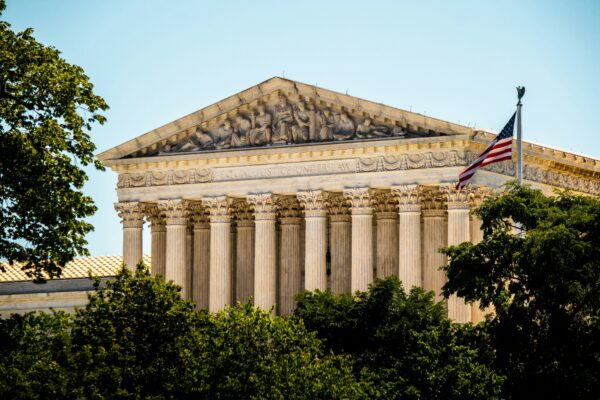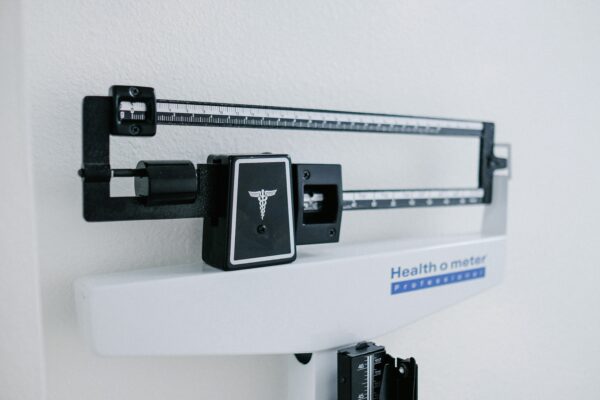May 3, 2019
Appeals Court Affirms Incident-To Ruling
- by Sean Weiss, Partner, Vice President of Compliance
On April 12, 2019, the Fifth Circuit Court of Appeals in the case of Zille Shah, MD and Zille Huma Zaim, MD, PA v. Alex M. Azar, II, Secretary, U.S. Department of Health and Human Services consolidated with Mohammad Nawaz, MD and Mohammad Zaim, MD, PA handed down their decision regarding the appeals concerning the revocation of two physicians’ Medicare Privileges. The providers submitted claims for services provided on dates that they were out of the country and the CMS revoked their billing privileges. The court considered the two above cases together and affirmed the revocation decisions of the Secretary of HHS. HIGGINBOTHAM, DENNIS, and COSTA, Circuit Judges heard the cases and the opinion issued by Patrick E. Higginbotham concluded: “The events that precipitated the revocation of privileges are straightforward. The physicians concede that they were both out of the country during the following periods: June 18–20, 2011; September 27–October 2, 2011; May 2–4, 2012; and May 20–June 4, 2013. During that time, Nawaz submitted over 100 claims for reimbursement at the physician billing rate for medical services using his unique Medicare National Provider Identifier (“NPI”) and Shah submitted over ninety Medicare claims for reimbursement at the physician billing rate using her unique NPI.”
There were a lot of interesting arguments made in this case including: violation of due process, disproportionate punishment to the violations, and an established property right in possessing and utilizing a Medicare provider number… However, all of these were rejected and the court affirmed the decision of the district court.
Incident-to have and continue to be at the heart of coding and billing issues within health systems, physician group practices, and hospitals… The providers were billing services Incident-To, while they were out of the country utilizing their NPPs and billing under the MD’s provider number to capture 100% of the physician fee schedule as opposed to the 85% of 80% billing under the NPPS NPI. This of course can be construed as an act of Fraud and violation of the False Claims Act (FCA) and/or the Health Care Fraud Statute.
The case goes on to state: “CMS administers the Medicare reimbursement program, including Medicare Part B, which covers medically necessary preventative services and supplies. CMS contracts with a private firm, Novitas Solutions (“Novitas”) to provide administrative services. On September 25, 2014, Novitas contacted Nawaz and informed him that his Medicare privileges were being revoked because he had submitted “in excess of one hundred Medicare claims during documented periods of travel outside the United States.” The letter informed Nawaz that the revocation was effective October 25, 2014 and notified him of his right to submit a Corrective Action Plan (“CAP”) within 30 calendar days if he believed he was “able to correct the deficiencies and establish [his] eligibility to participate in the Medicare program.” Shah received a similar letter on September 30, 2014, identifying over ninety submitted claims for services performed while Shah was out of the country; informing her that her Medicare privileges would be revoked effective October 30, 2014; and inviting her to submit a CAP providing evidence of compliance. The letters informed the physicians that their Medicare privileges were being revoked pursuant to 42 C.F.R. § 424.535(a)(8), the regulation defining “Abuse of Billing Privileges.” The physicians were informed that Novitas was establishing a re-enrollment bar for a period of three years pursuant to 42 C.F.R. § 424.535(c).
The physicians each submitted a CAP. In his CAP, Nawaz conceded that the claims at issue were for services performed by nurse practitioners while he was out of the country. He stated that he was “unaware that services for a nurse practitioner could not be billed under [his] NPI number unless [he] was physically present with them at all times.” For her part, Shah explained in her CAP that she had “hired experts to guide [her] through the process of correcting billing errors” and “discontinued the use of nurse practitioners altogether.” CMS, through Novitas, acknowledged receipt of both CAPs but determined that it would not overturn the initial revocations. He continued, acknowledging that “[t]he billing for Nurse practitioners using [his] NPI number was in error, however, this was not done knowingly with the intent to defraud Medicare.” CMS acknowledged that the CAPS gave an “explanation of the circumstances” but did not “negate the fact that claims were submitted for services that could not have been furnished by [either physician] on the dates of service reported.” Without verifiable evidence of compliance with the regulations at the time of the revocation, CMS maintained that the CAPs “must be denied.” CMS then denied the physicians’ requests for reconsideration.
Then, began the administrative review process… The physicians sought review of CMS’s decision to revoke their privileges before an ALJ. Across both proceedings, CMS and the physicians filed cross-motions for summary judgment and CMS prevailed before the ALJ. In both decisions, the ALJ noted that the physicians did not deny that they were out of the country on dates on which they submitted claims for services they allegedly provided. The ALJ determined that “concession is all that CMS needs in order to authorize revocation of [the physicians’] participation” in the Medicare program. Both Nawaz and Shah then appealed the adverse determinations to HHS’s Departmental Appeals Board (“DAB”). The DAB affirmed each decision after oral argument, noting that the uncontested facts showed that each physician had been outside of the country while using personal NPI numbers to bill Medicare. Nawaz and Shah then sought review by the district court under 42 U.S.C. § 405(g). After briefing and oral argument, the district court issued a consolidated decision affirming CMS’s revocation of the physicians’ Medicare privileges. Both physicians timely appealed.”
I can go on for another 3-4 paragraphs regarding all of the legal motions filed and the case law cited that I mentioned able but there is no need since the 5th Circuit Court upheld the lower court’s decision. So, let’s focus on what was really at issue; Incident-To billing…
Here’s the argument by the physicians: “The physicians’ interpretation of the relevant regulations lies at the heart of their appeal. The physicians contend that billing for services incident to the service of a physician does not require “the personal, on-site presence of the billing physician” and allows direct supervision to be provided by an “other practitioner.” They argue that the ALJ and DAB misread the regulations because the regulatory scheme “recognizes that the billing physician may make arrangements with another practitioner.” They maintain that the claims at issue did not violate the regulations because the services were actually rendered, those services were performed by nurse practitioners acting under the physicians’ orders after their initial evaluations, and they were performed “with covering [physicians] available.”
Medicare Part B covers certain kinds of medically necessary and preventive services.8 One category of covered services consists of those provided “incident to a physician’s professional service, of kinds which are commonly furnished in physicians’ offices and are commonly either rendered without charge or included in the physicians’ bills.”9 These services are often provided by non-physician practitioners such as nurse practitioners or physician assistants. In this case, in fact, they were provided by nurse practitioners on the dates during which Nawaz and Shah were out of the country.
In order to fit within this category of “incident to” services, however, a variety of requirements must be met, which CMS outlines in its published regulations. At issue here is the requirement that services or supplies be furnished “under the direct supervision of the physician.”10 The governing regulation establishing this requirement, as it read at the time of the physicians’ conduct in this case, explained the following:
(b) Medicare Part B pays for services and supplies incident to the service of a physician (or other practitioner).
(5) Services and supplies must be furnished under the direct supervision of the physician (or other practitioner). The physician (or other practitioner) directly supervising the auxiliary personnel need not be the same physician (or other practitioner) upon whose professional service the incident to service is based. Thus, the physician “upon whose professional service the incident to service is based” (that is, the “ordering physician”) need not be the same as the one providing direct supervision. In this case, Nawaz and Shah were the ordering physicians for all of the “incident to” procedures they billed to Medicare—they had established the treatment plans and ordered the services—while the nurse practitioners who performed the services were the “auxiliary personnel.”
The regulations in turn define “direct supervision” as follows: “Direct supervision in the office setting means the physician must be present in the office suite and immediately available to furnish assistance and direction throughout the performance of the procedure. It does not mean that the physician must be present in the room when the procedure is performed.” In other words, the regulations make clear that when Plan-B-eligible “incident to” services are furnished, a physician or other practitioner must be physically “present in the office suite” to directly supervise the services. Each physician who participates in the Medicare program receives an NPI number. When a member of the “auxiliary personnel” category (such as a physician assistant or nurse) described in 42 C.F.R. § 410.26(b)(5) provides “incident to” services and the ordering physician also directly supervises those services, the Medicare bill is made under that ordering physician’s NPI number. If no physician is present to directly supervise the auxiliary personnel, then the service must be billed under the NPI of the auxiliary personnel—this results in a reduction from a 100% billing rate for the medical service to an 85% billing rate.
A separate regulation outlines the reasons for which CMS may revoke Medicare privileges. One such reason is for “abuse of billing privileges,” which the operative regulation defines to include situations in which:
(i) The provider or supplier submits a claim or claims for services that could not have been furnished to a specific individual on the date of service. These instances include but are not limited to the following situations:
(A) Where the beneficiary is deceased.
(B) The directing physician or beneficiary is not in the state or country where services were furnished.
(C) When the equipment necessary for testing is not present where the testing is said to have occurred.
In other words, the revocation regulation specifically contemplates the issue here: the physicians could not have provided direct supervision because they were not in the country when the services at issue were furnished.
The lesson learned here is that trying to skate the guidelines or interpret them any other way than how they are written since they are considered “simple” by the courts is a danger to your survival. Violating these rules and regulations is risky and can lead to debarment and significant penalties and fines. Failure to have clear Standard Operating Procedures (SOPs) outlining the rules and regulations on billing practices not only to Medicare but to Medicaid and the Commercial payors you bill to can and will result in significant problems if you are non-compliant.


























